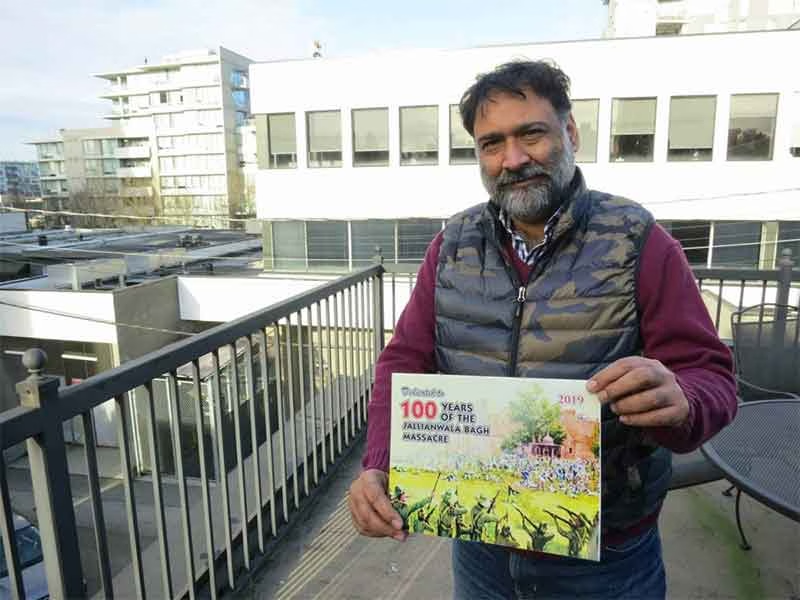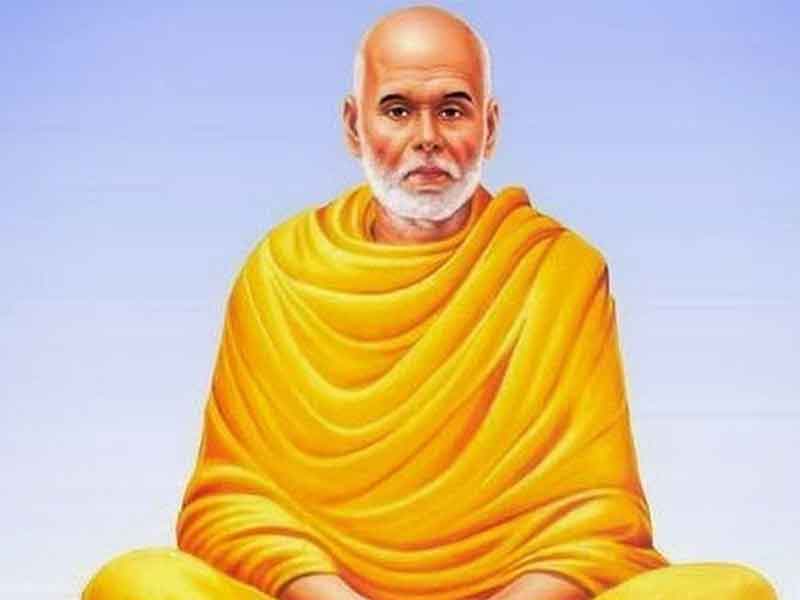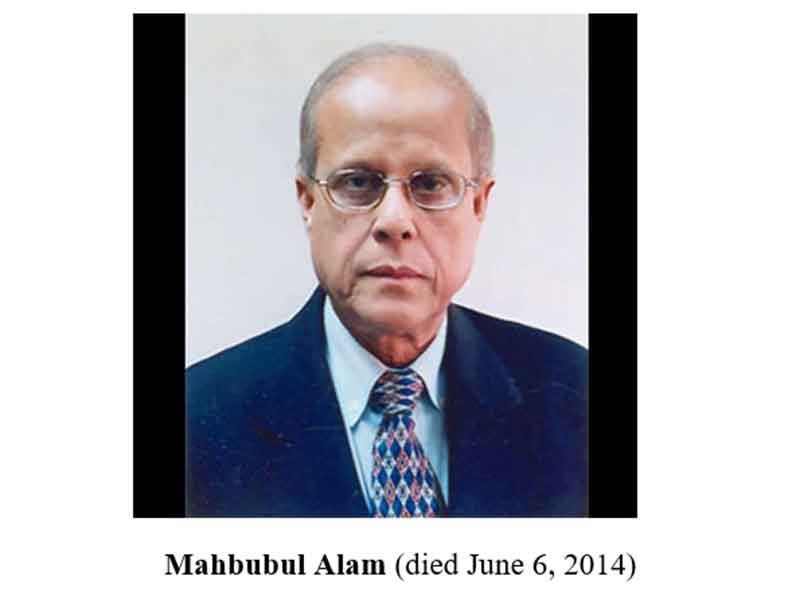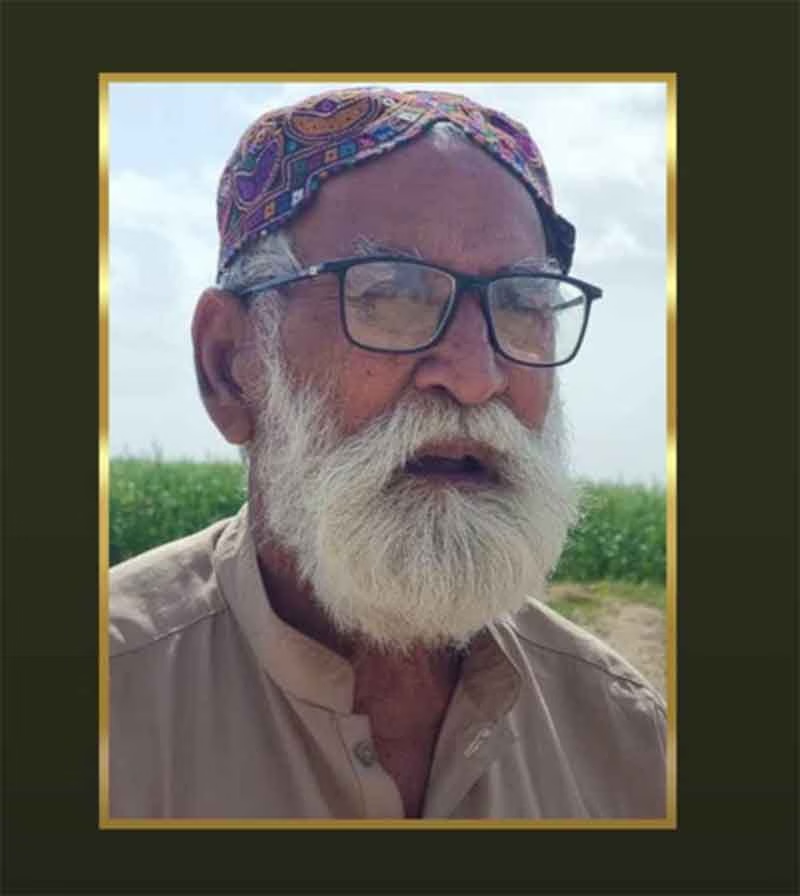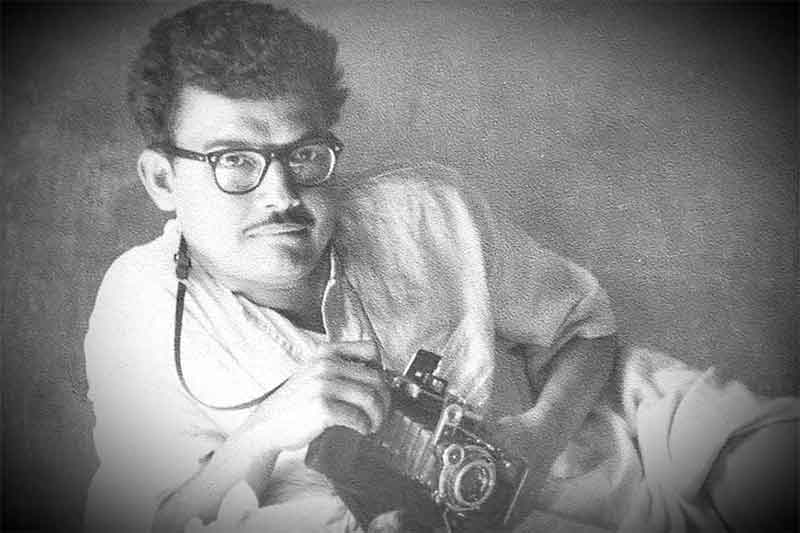
Today, 20 June is the 102nd birthday of eminent Bengali writer and journalist Gaur Kishore Ghosh. He was born in a village named Hat Gopalpur in Jasaur district of undivided Bengal. But due to partition, his family had to leave their ancestral home and come to India.
After that, after completing his intermediate science from a school in Navdeep, he could not complete his further studies due to poverty. Then, to earn a living, he worked for twelve years from 1941 to 1953, doing various jobs ranging from hotel boy to electrician, fitter, salesman, drama company manager, teacher, labour agitator, border customs clerk and after travelling a lot, he started working as a journalist in a Bengali language newspaper named Satyayug. Impressed by his style, he got an opportunity to join the Ananda Bazar Publications Group, the largest newspaper of Indian languages. In which he rose to the position of editor of a magazine named Desh and then to the position of editor of Ananda Bazar Patrika.
From Gaurda’s example, can we understand that there is any relation between higher education and knowledge? I have met personalities like Vinoba, Vasant Palshikar, Praful Bidwai, Nikhil Wagle. And I have had the opportunity to see and understand all of them very closely, so I am giving their examples.
And seeing his skill in investigative journalism, he was awarded the Asian Nobel Prize i.e. Ramon Magsaysay Award in 1981. Before that, in 1970, he was awarded the ‘Anand Award’, the best award in Bengali language given by Anand Bazar Publication Group. Apart from this, South Korea’s Journalism Award was given in 1976.
In 1981, Ichalkaranji of Maharashtra was awarded the FAI Foundation Award. And when he went from Calcutta to Mumbai for this award, he was the guest of Maharashtra’s litterateur Pul Deshpande. And Gaurda told me a very interesting description of how Pul took him to Ichalkaranji and brought him back to Mumbai in a Calcutta plane. I will write about it separately sometime.
We often see examples of circumstances destroying a man. But those who have tremendous willpower become like Gaurda. His political ideology was radical humanist due to the influence of M.N. Roy. I have seen many people with radical humanism who only see radical minus human. But Gaurda sees radical human in true sense. Due to this, I got the opportunity to meet barrister V.M. Tarkundeji at his house. Why such a good ideology could not progress? This question often came up in our discussions with Shiv Narayan Roy, Amalan Dutt and Gaurda. This ideology stopped with them. Perhaps the fascism ideology which M.N. Roy had condemned first of all. Radical humanism vanished with the growing influence of its Indian edition of fascist organization RSS. I have tried to say and write this after seeing the poignancy of the Bhagalpur riots. Which Gaurda used to respect. And there was a difference of father and son age between us. My father’s centenary and Gaurda’s centenary are in the same year (2023), despite that while introducing me he used to call me eminent literary figures of Bengali language as ‘Meet my friend philosopher and guide’ from Sunil Ganguly to Subhash Mukhopadhyay and Mahasweta Devi. Due to which I used to feel very shy. But he used to often say, “You are way ahead of your age.” Because sometimes he used to read out his editorials to me before publishing them. And I used to criticize them in my own way. So once when Atal Bihari Vajpayee was compared with Nehru, I criticized him in very harsh words. And much before Govindacharya, Atal Bihari is a mask. Who despite being a volunteer of the Sangh is trying to show a false liberal image. So he did not let that article get published. I have never seen such a democratic man. He behaved very generously with his children as well. And most importantly, with women, I have mostly seen his friends as housewives living a very simple life. And I have seen him trying to solve their simplest of questions. I have not seen Sane Guruji. But I could see Sane Guruji in Gaurda. I don’t know what I gave him in our friendship. But Gaurda has enriched my life.
Fifty years ago on 25 June 1975, after seeing the news of imposition of emergency in the country on the teleprinter of Ananda Bazar Patrika, Gaurda quietly got up and sitting on the roadside, first shaved off all the hair on his head and then started walking on the road. Then the acquaintances started asking “What is happening?” Then Gaurda kept walking saying “Jantaantra mara gaylo” in reply. This kind of unique satyagraha must have been the first after imposition of emergency in India.
So the Kolkata Police brought him to Writers Building to meet the then Chief Minister Siddharth Shankar Ray. Siddharth Babu said, “Gaurada, go to your home.” But Gaurada said, “Siddhartha, do your duty. I am doing my duty.” Then Siddharth Ray asked the police to take him to his home, take his belongings and take him to jail.
There have been many Satyagrahas during the Emergency. But this is the only Satyagraha of this kind. And he had written all these things to his 13 year old son Bhaskar from inside the jail, a beautiful letter from a father to his son. “Why did I do all this?” This letter has been translated into all the Indian languages of the country and I have tried to distribute it in the form of a bulletin. I have also tried to distribute it in Marathi language. ‘Father’s letter to his son’. It has become an important document of the Emergency. Five days from today, on 25 June, it will be 50 years of the Emergency. But the undeclared Emergency has been continuing for the last 11 years. And at this time, I am reminded of a fearless journalist like Gaurda.
Seeing the violence of Naxal agitators in 1969-71, Gourda, under the pen name ‘Rupdarshi’, wrote in a Bengali magazine named ‘Desh’ under the title “Aamke Bolte Daav” (Let me speak). Due to which he was sentenced to death in the so-called people’s court of the Naxalites. There was a lot of commotion in Bengal. Chief Minister Siddharth Shankar Ray deployed police for security. But Gourda asked to remove them. Then Anand Bazaar Group owner Ashok Kumar Sarkar said that “we arrange for our own private security.” So Gourda refused him too. I have never seen such a fearless man.
Mao died in 1976 during the Emergency. So there were Naxalites in Alipore Jail. And they had organized a condolence meeting for Mao in the jail. Gourda went there barefoot. So someone asked where are the slippers? So Gourda said, “Do we wear slippers after the death of a family member?” (This is a tradition in Bengal during the 11-day mourning period.) Can we call such a person anything other than a free enemy? He was a 100% radical humanist. And he lived up to the legacy of M.N. Roy. International Comintern officially sent M.N. Roy as its representative for the Chinese revolution. And before that he established the Communist Party in Mexico, the first country in the world after Russia. And he was elected its secretary.
Tapan Sinha has made a film in Bengali and Hindi based on Gaurda’s novel ‘Sagina Mahato’. The plot of this film is based on the various types of exploitation that happens with the workers of tea gardens. What are the flaws in the leadership of the so-called progressive workers? An attempt has been made to highlight this. This story is based on a true incident. I myself know that worker leader. Gaurda himself arranged my meeting with a leader of the worker movement related to him.
My opinion about Gaurda is that he was the ‘Bhishma Pitamah’ of Indian journalism. What is research journalism? This is reflected in his writing style. How to write about any kind of injustice? This is included in the list of his articles. The present state of freedom of expression is going through a more serious phase than the Emergency. Whatever Gaurda has done in the cases of Emergency and Naxalite movements is a very good example for today’s journalists.
He was a member of the Express Award Committee for some time. During that time, he had published a book on Assam’s questions before the Assamese movement (Assamese identity) and how second grade the machines of the Union Carbide factory in Bhopal were. A journalist named Mahesh Keswani was publishing this in his small paper even before the tragedy. That is why that Bhopal journalist was awarded the Express Award. That too before the Bhopal gas tragedy, on Gaurda’s insistence.
After the demolition of Babri Masjid on 6 December 1992, riots broke out in other parts of the country. There were riots in Calcutta at that time. There was a Gourda among those who worked as a reporter. At the age of 70, he used to roam around the riot-affected areas with a sketcher and the next day, the report with the sketch would appear on the front page of Ananda Bazar Patrika. A lot can be learned from that research journalist.
Along with journalism, he has written stories, poems and novels. His last novel is after the Bhagalpur riots. It is being read in both Bengals today. Anyway, since the beginning of journalism, he is a journalist read in both Bengals. Perhaps more in Bangladesh.
Although, despite being a victim of partition himself, the level of humanity with which he has written is really astonishing. Because I have had the opportunity to see Palestine, Syria, Iraq, Iran, Egypt, Turkey, Azerbaijan, Kurdistan, old Yugoslavia, which has been divided into so many pieces today. And what is the only agenda of the Rashtriya Swayamsevak Sangh family in our country India for the last 100 years? An emotional reaction of revenge is being seen in Pakistan, both sides of Bengal, Lebanon, Afghanistan and every corner of the world. Gaurda himself was among the refugees. But I did not see any bitterness or reaction in his mind anywhere. On the contrary, I have heard him talking very positively about Surhawardi. That is, a living example of radical humanism in the real sense.
In 1988, before the second leg of Baba Amte’s Bharat Jodo Yatra was to start from Kohima to Okha, Baba was to stop for some time at the Kolkata airport on his way to Kohima. So Yadunath Thatteji, the editor of the Marathi language weekly Sadhana, wrote a postcard to me informing me that “I have to give company to Baba at the Kolkata airport.”
So I reached the VIP lounge of the airport and saw that a gentleman was already sitting there, wearing typical Bengali dhoti-kurta and jacket. When I reached there, Baba said to him in English, “Meet my young friend Dr. Suresh Khairnar.” And then told him his name. I said, “I know you from the time of emergency. I have translated the letter written to your son in Marathi language. We have distributed the letter in cyclostyled form.”
So after seeing Baba off to the flight, I was about to leave for the return bus. Then he said that first come to my house. After that I will drop you at your house while going to Anand Bazar Patrika. His house was in Ulta Danga before my house from the airport. So I joined him. After reaching his house, he called all the members of the family and introduced me to everyone.
After showing me his office at Ananda Bazar Patrika, he dropped me at our house in Fort William. But before leaving he said, “During Bharat Jodo Yatra, you come with me to Shantiniketan, and from there we will join that journey till Calcutta.” And I have just seen that the distance from Fort William to Ananda Bazar Patrika is very easy to cover on foot. You can come to the adda any time after 3 pm.” This is how my friendship with him started. Which continued till his last days. Now it has been 20 years since he left.
He has introduced me to Bengal’s literature, music, drama, cinema, journalists and even Mamata Banerjee. Because of this, I have enjoyed Bengal’s cultural life more than I have enjoyed Marathi. He himself introduced me to the cream of Bengal – Ali Akbar Khan, Vilayat Khan, Ravi Shankar, Mahasweta Devi, Subhash Mukhopadhyay, Sunil Ganguly, Aparna Sen, Chidananda Dasgupta, Dibyendu Palit, Shakti Chattopadhyay, Badal Sarkar, Savli Mitra, Mrinal Sen, Shambhu Mitra, Ananda Shankar Roy, Abu Bashar, Avik Sarkar, Satyajit Ray, Soumitra Chatterjee, Amlan Dutt, Shiv Narayan Roy, Ashish Nandi, Piyush Kanti Sarkar.
And the biggest thing is the riots that started in Bhagalpur in October 1989 during the Ramshila Puja procession. He had gone there earlier to see the situation after the riots. And he kept urging me to come again and again. But I was busy with household chores at that time, so I could leave for Bhagalpur only when the children’s holidays started in the first week of May, by then six months had passed since the riots.
I have had the opportunity to meet writers, poets, journalists and artists many times in my 70 years of life. But I have never seen anyone so human. It seems that Gourkishore Ghosh was born only to love. If there is anyone who is the biggest example of a writer-editor’s de-addiction, then it is Gourda. Today is his 102nd birth anniversary. That is why these memories came flooding to my mind today.
Subscribe to Our Newsletter
Get the latest CounterCurrents updates delivered straight to your inbox.
Dr Suresh Khairnar is Ex. President of Rashtra Sewa Dal


